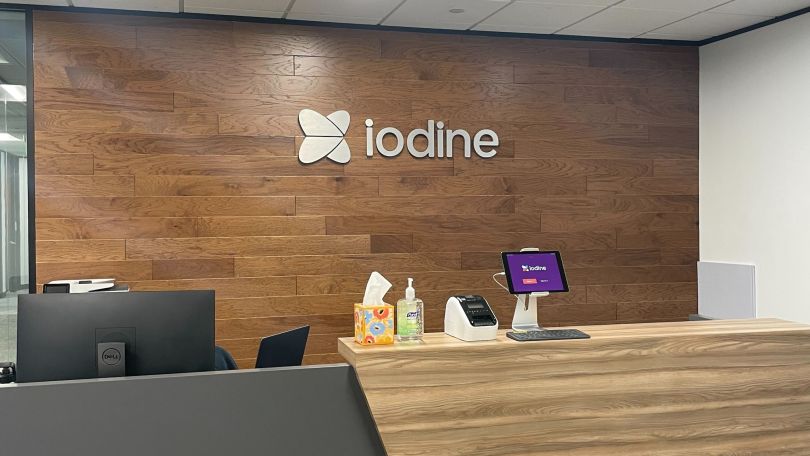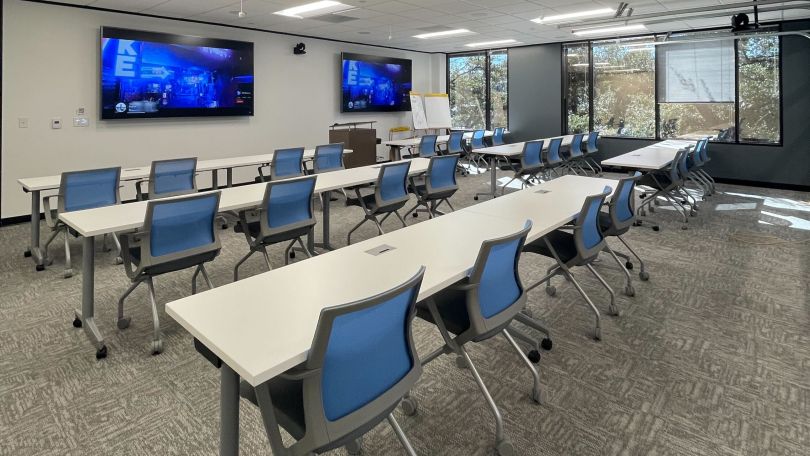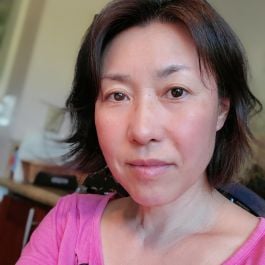The development team at Iodine Software has something that many tech teams don’t — extensive AI experience.
We are in the midst of the AI boom, and AI engineers and data scientists with as little as one to two years of experience are still highly sought after. In contrast, Iodine Software recently got to show off its tech team’s decade of experience that is built into new products like AwareUM and updates to the company’s AI engine, CognitiveML. Both are part of Iodine’s platform of AI tools that pull clinical insights from healthcare data.
Considering that less than 5 percent of healthcare organizations were using AI tools in 2022, according to findings shared by Johns Hopkins, and that number shot up to 79 percent in the two years since, according to a Microsoft-commissioned study through IDC — the need for talented tech teams with AI experience in healthtech has become crucial.
It’s not unreasonable to say that the tech team at Iodine Software is welcoming others to a AI race that they have been running for a while.
How is AI used in healthcare?
Some of the ways AI is being used in healthcare include:
- Managing healthcare data
- More accurately reading medical imaging
- Assessing insurance claim documentation
- Speeding up drug research
- Performing robotic surgery
When the development team at Iodine Software was ready to push a new update live to the CognitiveML platform, it was a little like they were sending a new sports car out for a test run while other teams might be still working on their take of a model T.
Senior Director of Platform Engineering Kelly Yao watched the team push the update live and knew it was a shared milestone.
“It’s a great sense of accomplishment,” said Yao, who was in charge of creating the CognitiveML platform roadmap and delivering it to production as promised. “On top of that, I built a great team and watched the team members work together and grow.”
The update was for the AI backbone of Iodine Software’s platform, CognitiveML. Iodine Software creates platforms for clinicians to use the power of AI to accurately capture patient documentation — which is a big deal in healthcare tech. Also in early 2024, the team released AwareUM, a tool that helps hospitals streamline utilization management programs. AwareUM uses the AI foundation of CognitiveML.
How Iodine Software Leads the Way in AI
The ample AI experience on Yao’s team means that they get to work on the type of AI projects that many engineers could hang their hat on.
“The biggest win for my team is to have the opportunity to design and implement a big-scope software platform from scratch with new technologies,” noted Yao. “This is a precious experience for software engineers. We all developed and grew through this launch.”
While the actual reach of CognitiveML and AwareUM are far more complex, the tech team’s work could be summarized with something like: build a platform that can assess patient records and offer predictive insights like a healthcare practioner would.
“The recent launch of the first set of condition AI models on our new CognitiveML platform marks a significant achievement,” Yao said, explaining that the CognitiveML platform integrates core AI model inferencing with the company’s data processing engine. “Along with a suite of well-coordinated microservices, it represents the successful culmination of extensive efforts by the engine team, architects, devops and QA teams, who built it from scratch.”

Yao’s role is to lead the design and development of the platform, which in turn is responsible for the core data processing, ML operations and data analytics reporting. Yao described three major areas of responsibility.
“First, define the technical vision and roadmap for a whole new ML operations platform and core analytical platform,” said Yao. “Second, hire, coach and mentor world-class engineering teams, continuously helping team members grow. And third, lead engineering operations and communications across teams, delivering critical platform services and components on time and providing production support to ensure customer satisfaction.”
Yao played the part of the project leader, which meant collaborating with the architect and tech leads to design the blueprint, assemble an engineering team and oversee the development and deployment of services and models.
“This modern ML operations platform now enables us to rapidly deploy AI models created by our data scientists, marking a major milestone for the company,” noted Yao.
How It Was Made
The team had numerous challenges that they had to overcome. For example: If the goal of this new platform was to replace the existing platform, then how would they make it valuable for existing customers?
“One challenge when you build a big-scope new platform is: how do you achieve continuous delivery in this long-term initiative?” said Yao. “We had to figure out how to make our deliverables add a net-new value for our customers, instead of just replacing the existing functions.”
“We had to figure out how to make our deliverables add a net-new value for our customers, instead of just replacing the existing functions.”
Yao’s team decided to take the initiative one step — or scope — at a time.
“We defined the scope of platform functionalities to just support one specific model,” Yao explained.
Once those functionalities were completed, Yao explained, the team delivered this model with the corresponding set of components and handed it off to customers to get their feedback.
“Then we added functionalities for another model, along with improvements to address the customer feedback, and delivered it to keep on the cycle,” said Yao. “This was the agile way we developed and delivered our software.”
The big challenge: a whole new AI model.
Building a new iteration of any AI platform is a massive task, especially since many AI platforms are created by duplicating existing models and adding on to them. But the Iodine team decided to rebuild the platform from scratch.
“We then started with a whole new model in our new Utilization Management product,” said Yao. “This gave us a clean slate to build our platform, and also created something new for our customers.”

What It’s Like To Work on AI for Iodine’s Dev Team
“Teamwork makes the dream work,” said Yao when asked what quote or idea comes to mind to describe Iodine’s team culture. “And it’s also shared by all Iodine teams. Although teamwork is the keyword used everywhere, here at Iodine, development teams take it to heart.”
Yao shared how, on the larger tech team of engineers, data scientists and product team members are united by coming together over technical knowledge shares. Everyone supports each other with three key actions, according to Yao: tech sessions, pair programming and group debugging.
“Team members jump in and help each other whenever needed,” added Yao. “It’s the culture that we built together and continue to preserve.”
Iodine’s tech team — in addition to having robust AI experience — has won several awards for their work. In the area of generative AI the team won a Best in KLAS for clinical documentation integrity solution for AwareCDI in 2023. The team also was named one of the 101 Most Innovative Health Diagnostic Companies in Texas by Best Startups Texas, which assessed over 100,000 startups. Iodine also made the list of CB Insights Digital Health 150, which identifies the “most promising digital health startups in the world.”
“We work on the most cutting-edge software technologies and build state-of-the-art platforms,” said Yao. “We continuously take on new challenges and explore the unknowns, turning proofs of concept into real viable products that make an impact in healthtech.”
Professional Development Perks at Iodine Software
- Continuing education and tuition reimbursement stipend
- Job training and conferences
- Online course subscriptions available
- Paid industry certifications
- Promote-from-within culture
- Lunch and learns
“Join the Iodine tech team, you will feel like you’re working with a close-knit group of talented team members exchanging best practices and great ideas, sharing advanced technologies and supporting each other through our many initiatives,” Yao said.
Yao shared how the combination of a truly supportive environment and working with engineers who have a team attitude sets Iodine apart.
“I’ve seen some companies treat their star engineers differently from the rest of the team,” said Yao. “Although I think the mainstream is still to focus on overall team work efficiency instead of emphasis on individual achievements.”
When asked what advice might help other tech leaders build an attractive team culture, Yao said: “Support learning opportunities, encourage the team to develop new skills, even when it's outside your comfort zone. When an issue occurs, encourage the team to solve the problem together, no matter the cause of the issue.”
Yao added that it’s the daily points of engagement — like having a supporting atmosphere and making sure to celebrate the wins — that really make Iodine a model for what other teams should try and replicate.
“Great work deserves recognition,” Yao concluded. “Try to build a serene working environment even with the many initiatives at play. My team created the fun Slack channel to share interesting moments in our lives. It helps build strong ties among members and makes us feel like a cohesive team.”






